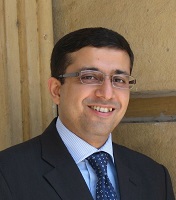Vishal Kapoor, General Manager – Wealth Management, Standard Chartered Bank on self-regulatory organization (SRO), close-end funds and more in the concluding part of the interview.
 What is your view on close-end funds?
Are you recommending them to your clients?
What is your view on close-end funds?
Are you recommending them to your clients?
We haven’t been very active in this space. We recommend the ones that we believe are differentiated and offer value to our customers. Open- end strategies are available with a decent track record, therefore we need to see why a customer would we like to give up liquidity. Having said that, there are some instances where close-end funds may bring a certain discipline that you many not necessarily have with an open end fund. Customers should be ready to make that choice.
How have the falling commission structure been impacting the revenues of wealth management firms in India? Do you see entry of new players in this segment, specifically large players?
Margin reduction forces us to become more efficient. There is no shortcut to improving efficiency. So while revenue margins have come down, we have focused on reducing cost by become more efficient. For instance, a larger share of our transactions and servicing can be done online, which leads to a significant cost reduction. We are also exploring if processing can be centralized to improve efficiency. So while margins have reduced, we have continued to grow our revenues and AUM despite the headwinds. We have to continuously evolve.
I would hope that more players come in because that will help the overall cause we are working towards. Our current penetration of the market for financial planning is still quite small. Access to financial planning and advice needs to be easier. A larger number of players investing in people, infrastructure, technology and good practices will help a far more number of individuals that can benefit from advice. Unfortunately, the number of active distributors has come down. The industry must challenge itself and ask why this is happening. There are several players including IFAs who are able to grow their business despite the headwinds.
Smaller AMCs complain that large distribution outfits don’t sell their products because they don’t meet the Rs. 10000 crore AUM criteria. What are your views…
Our bias is for quality and the appropriateness of the investment opportunity. There are enough instances where we worked with a relatively small AMC with a good idea. We had the conviction to pick up the idea and build the fund to a fairly large level now. Our selection mechanism doesn’t start with AUM. We deal with a wide range of funds. Not all of them are above the watermark that you mentioned.
Do you see PSU banks getting active in third party distribution and wealth management space?
This is a long-term business. It takes considerable investment in training, expertise, technology and processes to build this business. Many private and foreign banks had set up their wealth management business quite early and they have built it up over the years. It’s a strategic call which a specific bank has to take.
Do you think SRO will help the industry?
The
setting up of an SRO for funds is regulatory direction provided. It can allow
us to bring together good ideas and practices which can help the industry.
There are some industry associations already doing good work. An SRO can help
the distribution industry come together and help follow consistent
practices.
This is the concluding part of the
interview.






